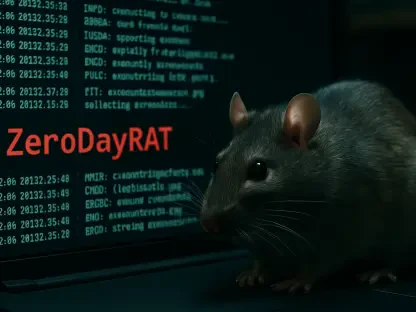In the ever-evolving landscape of cybersecurity, a new threat has emerged with significant implications for Android users. Discovered by Lookout security researchers, the Android spyware known as DCHSpy has been linked to the Iranian Ministry of Intelligence and Security (MOIS) and poses a substantial risk to individuals, particularly those involved in activism and dissent. Originating from the MuddyWater group, the spyware has gained notoriety for masquerading as popular VPN and Starlink applications, thereby ensnaring unsuspecting users. The discovery of DCHSpy followed the Israel-Iran conflict and highlighted its sinister ability to infiltrate devices and harvest valuable personal data, such as WhatsApp information, contacts, and call logs. The initial detection in July 2024 has since underscored the need for vigilance as Android users stand on the frontline of this digital menace.
Analyzing DCHSpy Tactics
DCHSpy primarily targets English and Farsi-speaking dissidents, activists, and journalists by luring them through deceptive VPN services. With tensions escalating in the Middle East, its timing underscores the meticulous planning behind its deployment. Posing as reputable VPNs, such as Earth VPN, Comodo VPN, and Hide VPN, DCHSpy exploits the trust users place in these applications. The emergence of APK files with Starlink-related names is particularly notable, exploiting the heightened interest in Starlink’s activation in Iran amid an internet crackdown. This strategy involves exploiting users’ attempts to bypass restrictions, leading them to inadvertently download and activate malicious software on their devices. By adopting trusted service names, the spyware not only infiltrates personal devices but also gains access to sensitive data crucial for dissident networks.
The infrastructure and tactics of DCHSpy share similarities with another Iranian malware known as SandStrike, betraying a continued strategic approach by malicious actors. Both malware types utilize malicious URLs disseminated through messaging applications such as Telegram. This method of distribution is particularly insidious as it capitalizes on users’ reliance on encrypted communication platforms, leading to potential widespread infection. The resemblance between these spyware strains emphasizes the adaptive strategies used by threat actors to persistently target vulnerable groups in the Middle East. Despite increased awareness among cybersecurity communities, the complex nature of DCHSpy’s operational tactics presents significant challenges in detection and mitigation efforts, demanding continuous vigilance and innovation in response strategies.
Regional Impact and Broader Implications
DCHSpy is not the only Android spyware threatening the Middle East, with similar strains such as AridSpy and BouldSpy making headlines. These threats highlight a growing trend of targeting specific regions using sophisticated malware that evolves in response to shifting political dynamics. As dissidents and minority groups increasingly rely on digital tools for safe communication, the danger posed by such spyware cannot be underestimated. Moreover, the emergence of new variants of DCHSpy indicates its developers’ agility in adapting to changing environments, marking a disturbing trajectory for future cyber threats. The ongoing adjustments in hacking tactics, seen in their incremental development, signal a persistent threat, prompting an urgent need for enhanced cybersecurity measures to protect vulnerable populations.
The stakes extend beyond individual privacy violations, threatening broader geopolitical stability and marginalizing voices essential for democratic discourse. Activists and journalists facing government backlash are not only losing their privacy but also risking the integrity of their movements. The infiltration by spyware like DCHSpy raises ethical concerns regarding state-sponsored surveillance, urging an international discourse on digital rights and security. As more incidents reveal state-backed efforts to undermine the agency of distinct groups, the necessity for global cooperation in enforcing digital safety becomes increasingly evident. Consequently, bridging the gap between technological advancements and evolving threats remains crucial for safeguarding freedom of expression and protecting personal privacy in a digitally interconnected world.
Future Considerations
DCHSpy is malicious software primarily targeting English and Farsi-speaking dissidents, activists, and journalists. It ensnares its victims by masquerading as reputable VPN services such as Earth VPN, Comodo VPN, and Hide VPN. This tactic takes advantage of the trust users have in these applications, especially with rising tensions in the Middle East. The spyware’s emergence coincides with heightened interest in Starlink’s activation in Iran, exploiting users’ attempts to bypass internet restrictions. APK files with Starlink-related names trick users into downloading malicious software, compromising their devices and accessing sensitive data vital to dissident networks.
The infrastructure and methods of DCHSpy resemble those of another Iranian malware, SandStrike, revealing a strategic pattern among threat actors. Both employ malicious URLs shared via messaging platforms like Telegram, exploiting users’ reliance on encrypted communication. Despite increased cybersecurity awareness, DCHSpy’s complexity poses ongoing detection and mitigation challenges, requiring persistent vigilance and adaptive response strategies to counter its threat effectively.









